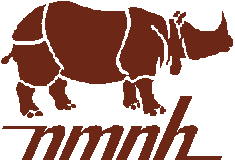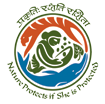- Home
- About Us
- Established and successfully operationalised the NMNH in the Capital city of the country with effect from 1978.
- Organized a variety of educational and extension services to supplement formal education system and bring environmental awareness among the masses.
- Publication of popular literature on environmental and conservation issues.
- Organized several in-house and outdoor exhibitions and expositions on Nature and Environment to reach out to a wider audience.
- Organized/participated in the 'Festivals of India' abroad held at USA, USSR, Japan and Nepal on behalf of the Ministry of Environment & Forests.
- Established and operationalised four Regional offices (Regional Museums of Natural History) at Mysore (Southern Region) in May 1995, Bhopal (Central Region) in September 1997, Bhubaneswar (Eastern Region) in August 2004, Sawai Madhopur (Western Region) in December 2007. A fifth Regional office is coming soon at Gangtok (North-Eastern Region).
- To establish the state-of-the-art National Museum of Natural History on its own land and in a suitably designed building.
- To establish a networking of Natural Museums and biological collections in India with the available resources of NMNH and its Regional Offices linking with State-level organizations.
- To organize academic seminars/conferences/workshops in professional aspects of Museology related to Natural History Museums.
- To undertake National Status Surveys on Natural History Museums in India at periodic intervals.
- To extend professional help to other Indian museums/organizations with natural history sections/collections.
- To establish National Resource Center on EE with films, videos, CDRoms, audio recordings (animal and bird calls) etc. on various topics on Natural Heritage.
- To establish a Natural History Museology Training Center to train staff working in Natural History Museums, and build their capacity not only in India, but also in countries of SAARC.
- To establish National Centers on a few thrust areas in which the NMNH and its Regional Offices have already excelled: Museum visitor Studies, Museum Access Studies, Intangible Natural Heritage etc.
- To undertake professional development on an international level by collaborating with various committees of ICOM (International Council of Museums).
Vision & Mission
Milestones
(a) So far:
(b) For Future:
Vision Statement
The NMNH would be established in its own premises as a self sustainable state-of-art facility along with its fully established regional offices. It will be an institution recognized nationally and internationally in the field of Environmental Education and professional Natural History Museology. As a public service institution, the resources of the Museum would be made available and accessible to all visitors. A strong networking of NMNH and its Regional offices will be developed in order to extend the activities of the NMNH at the regional and state level.
Visitor’s Service
Educational programmes: The NMNH organises a large number of educational programmes throughout the year. These may be classified as interpretation, extension, in-reach, and out-reach programmes. Interpretation programmes are services provided in the Museum Galleries. Extension programmes includes services provided outside the Museum to schools who have been to the Museum earlier. Out-reach programmes include special services provided to those who cannot visit the Museum. In-reach programmes are special services provided inside the Museum to those who generally do not visit the Museum.
Guided tours: Visitors to the NMNH/MOEFCC are generally provided with guided tours of the Galleries/ Indira Paryavaran Bhawan (Green Buildling) by trained Educational Assistants on request.
Vacation programmes: During the summer and winter vacation periods, the Museum organise a large number of special programmes involving in-house and out-reach programmes and nature camps. The programme consists of museum studies, discussion sessions, outdoor nature explorations, observation and analysis of pollution problem in the urban environment, individual project assignments and exposure to the ecosystem in a National Park or Wildlife Sanctuary in India.
Programme for Children with different abilities: The NMNH organises a large number of educational programmes to cater to the needs of Children with different abilities related to vision, speech/ hearing, locomotion, mind etc. These include special structured guided tours of museum galleries, 'Touch, Feel and Learn' programmes, use of audio-aids and Braille materials. It also organises special competitions. As part of its Museum Accessibility Programmes, the NMNH also organises professional capacity building workshops for Museum people for sensitizing them about the special needs of children with different abilities.
Teacher Orientation Workshops: One of the primary target audiences of the NMNH is schoolteacher for whom it organizes regular training workshops. Such workshops are generally intended to expose schoolteachers to the resource materiel available at the Museum which may help in classroom teaching.
Publications: The NMNH occasionally publishes popular literature on environmental related topics, worksheets and workbooks for use by children. These include "take-home leaflets" on selected exhibits and nature study project packages for youngsters. These are available to schools on request.
 Skip to Main Content
Skip to Main Content








